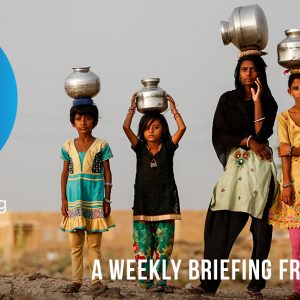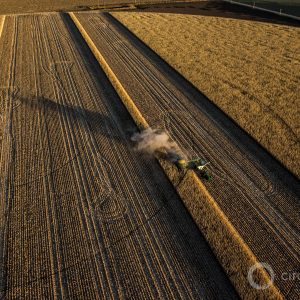The Stream, March 6: Indonesia Bans Toxic Factory Waste from “World’s Most Polluted River”
The Global Rundown
Indonesia moves to ban toxic waste as part of the Citarum River clean-up initiative. Drought-stricken South Africa starts an investigation of its water ministry. A thaw in the United Kingdom leaves thousands without water as pipes burst. Australia’s wheat output is expected to jump by 11.8 percent as La Niña brings increased rainfall. Nearly 150,000 people are in need of aid a week after a deadly earthquake rocked Papua New Guinea. Heavy late-winter snowfall slows California’s descent into drought.
“The water looks like it has been mixed with the waste, and sometimes it smells like ointment.” –Nurhayati, a resident of Majalaya, Indonesia, in reference to the heavily-polluted Citarum River. Indonesian lawmakers are starting a 7-year campaign to clean the waterbody, which is often referred to as the world’s most polluted river. Indonesia’s will begin the campaign by banning toxic factory waste and toughening enforcement of environmental controls. CBC
In context: Jakarta, the world’s fastest-sinking city, also faces rising sea levels and river pollution
Latest WaterNews from Circle of Blue
What’s Up With Water – March 5, 2018 – “What’s Up With Water” condenses the need-to-know news on the world’s water into a snapshot for the start of the workweek. Listen to this week’s edition to hear coverage on South Africa’s ongoing drought, Yemen’s cholera crisis, and a controversial Michigan groundwater bill.
HotSpots H2O, March 5: Spotlight on the Grand Ethiopian Renaissance Dam – Ethiopia is building a mega-dam along the Nile River, and the ambitious project is straining relations with downstream Egypt.
Straight Pipes Foul Kentucky’s Long Quest to Clean Its Soiled Waters – A two-decade mission to reduce sewage pollution still has a lot of work to finish.
By The Numbers
147,000 Number of people in Papua New Guinea in need of urgent food, water, and sanitation services a week after a 7.5 magnitude earthquake shook the island nation. Landslides demolished several roads, which is obstructing aid delivery. The New York Times
20,000 Number of homes in London that were without water on Sunday after a water main break. A spring thaw has caused pipes to burst and leak across Wales and southeast England, leaving thousands without water. BBC
Science, Studies, And Reports
Australia is expected to produce 23.7 million tonnes of wheat in 2018/19, an 11.8 percent increase from the previous season, according to a report by the country’s chief commodity forecaster. Despite a small decline in plantings, bountiful rainfall from La Niña is predicted to boost yields. Reuters
On The Radar
After a week of heavy snowfall, California awaits a late-winter survey of the Sierra Nevada snowpack. The precipitation, which came amid an abnormally dry winter, will help slow the state’s decline into drought. The New York Times
The South African parliament plans to conduct an inquiry into allegations of mismanagement by its Department of Water and Sanitation. The Parliament’s Standing Committee on Public Accounts accused the water ministry of “irregular, fruitless and wasteful expenditure” in the midst of the country’s worst drought on record. Reuters
In context: Circle of Blue’s coverage of Cape Town.
Kayla Ritter is a recent graduate of Michigan State University, where she studied International Relations and Teaching English to Speakers of Other Languages. She is currently based in Manton, Michigan. Kayla enjoys running, writing, and traveling. Contact Kayla Ritter






Leave a Reply
Want to join the discussion?Feel free to contribute!